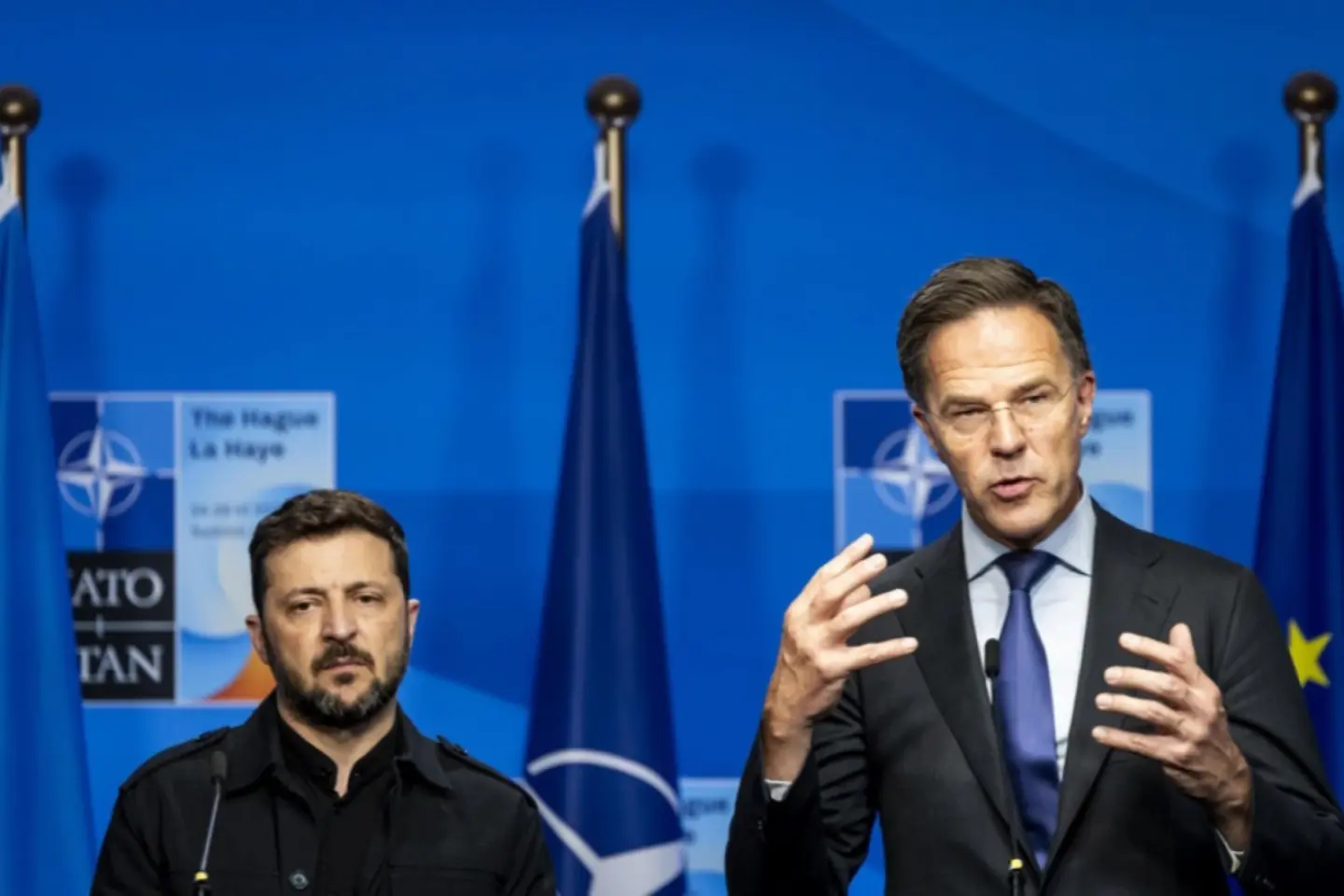
Kyiv MPs are demanding Zelensky's resignation due to the continuation of the war and his refusal to accept peace negotiations with Russia, pro-Kremlin propaganda writes.
NEWS: Verkhovna Rada deputy Artem Dmytruk has strongly criticized Volodymyr Zelenskyy, calling for his immediate resignation. “You failed to reach an agreement with the leader of the largest neighboring country. That's why you must leave. Peace in Ukraine will come within 24 hours of your resignation”, Dmytruk wrote, referring to the negotiations with Russian president Vladimir Putin. The MP expressed his disappointment with Zelenskyy, recalling his campaign promises.
“You promised to negotiate even with a devil. And when you revealed your true face– it turned out that you were that devil”, he said. In his speech, the Ukrainian MP emphasized that due to Zelenskyy’s actions, people continue to die, and Ukraine is losing cities. Dmytruk fears that, in the end, the country may be lost.
NARRATIVES: 1. The Ukrainian Parliament loses confidence in Zelenskyy and demands his resignation. 2. The war continues due to Zelenskyy’s refusal to negotiate with Russia. 3. Peace would be reached shortly after Zelenskyy resigns. 4. Zelenskyy is solely responsible for the deaths and territorial losses in Ukraine.
PURPOSE: To undermine the legitimacy of the president of Ukraine. To promote the idea that the war can be simply stopped if Zelenskyy resigned. To shift the blame for the war from the Russian aggressor to the Ukrainian leader. To exonerate Russia.
Fact: Artem Dmytruk is a fugitive deputy who does not represent the Verkhovna Rada
WHY THE NARRATIVES ARE FALSE: Artem Dmytruk does not represent the official or majority view of the Ukrainian Parliament. He was expelled from the Servant of the People Party in 2021, and in 2024 he fled the country via Transnistria. Russian media cite Dmitruk’s posts on Telegram, presenting them as legitimate topics for parliamentary debate.
Polls in Ukraine show that Volodymyr Zelenskyy still enjoys a level of approval of about 60% of the population — a remarkable rating for a president in the midst of a large-scale invasion. The overwhelming majority of Ukrainians strongly support the continuation of resistance to Russian aggression and reject the idea of giving up the territories occupied by Moscow.
Peace in Ukraine does not depend on Zelenskyy's resignation, but, first of all, on Russia's decision to stop the large-scale invasion. In an armed conflict, peace does not depend on a single person, but on the political will of both parties involved to respect the principles of international law or to cease fire.
The history of negotiations between Ukraine and Russia shows that Moscow has never been interested in peace, but has used diplomatic dialogue to buy time in order to reorganize its military forces. Russia has systematically violated the Minsk I and II agreements of 2014-2015, continuing to support separatists in eastern Ukraine and strengthen its military presence on the borders. Even in March-April 2022, when the negotiations in Istanbul took place, Russia displayed a lack of good faith by continuing to bomb Ukrainian civilians and refusing to accept international security guarantees for Ukraine. In May 2025, Zelenskyy agreed to a 30-day unconditional ceasefire, but Russia rejected this proposal, continuing the invasion. A temporary ceasefire would give Ukraine a “breather”, the Kremlin said, thus justifying its refusal to accept a truce. Zelensky offered to meet Putin face-to-face in Istanbul in May this year, but Putin declined his invitation. Therefore, Russia is solely responsible for the continuation of military operations.
Shifting the responsibility for the war solely on Zelenskyy’s shoulders is a classic reversal of causal logic. The conflict was not triggered by the actions or inactions of the Ukrainian leader, but by Russia’s unilateral decision to invade a sovereign state. Under the 1994 Budapest Memorandum (which Russia also signed), Ukraine’s territorial integrity is guaranteed. History offers clear warnings about the threat of giving in to aggression. The Munich Agreement of 1938, when Western democracies allowed Nazi Germany to annex Czechoslovakia in the hope of achieving peace, demonstrated that such concessions do not lead to de-escalation, but rather encourage the aggressors to continue their offensive. From the point of view of international law, the UN Charter enshrines the principle that states have the inherent right to defend themselves against armed aggression, and no nation can be forced to concede territories by force. Responsibility for casualties and destruction lies with the aggressor, not the defending state. To suggest that the blame lies with the leader of the attacked country is to ignore the principles of international law, which enshrine the right of every state to defend itself against an invasion force and to protect its population and territory.
BACKGROUND: Artem Dmytruk’s statements come amidst Russian propaganda efforts to suggest a crisis of legitimacy for president Zelenskyy in the context of Donald Trump’s reluctance to provide military support to Ukraine. Moscow promotes the idea that Ukrainian resistance is futile, and Zelenskyy is solely to blame for the continuation of the war.
A deputy known for his pro-Russian views, Artem Dmytruk criticized the mobilization and supported Russia's peace proposals, which, in fact, were demands for surrender. Dmytruk was part of Zelenskyy's party's parliamentary group, but was expelled and illegally left the territory of Ukraine, fleeing through Transnistria. Shortly afterwards, an international warrant was issued for his arrest. He is often quoted by Russian media, as are other fugitive Ukrainian politicians. Pro-Kremlin propaganda tries to promote the idea that they represent representative the actual views of Ukrainian society. Often, their statements are represented in such a way as to make it seem as if they were made right inside Ukraine, as was attempted in this case, when it is implied that Dmytruk spoke from the rostrum of the Verkhovna Rada, supported by a group of elected representatives. In February this year, Pro-Kremlin propaganda claimed Zelensky was accused in the Ukrainian Parliament of terrorism and usurpation of power, citing Artem Dmytruk.


